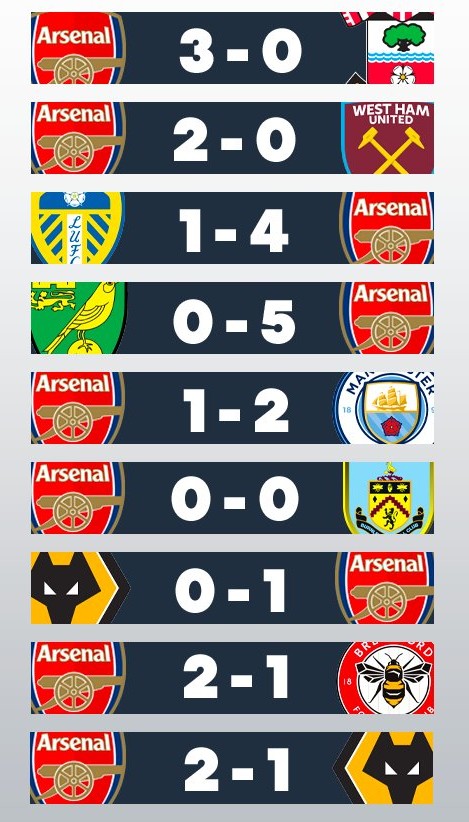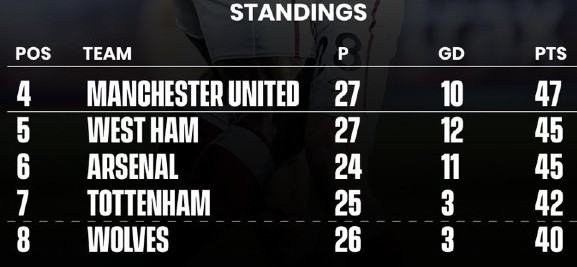It’s been a little over two years since Mikel Arteta became Arsenal’s manager – almost a lifetime for many contemporary Premier League managers. His role, as many view it, is a great honour (which it is), but it’s also a position that requires a great deal of dedication, hard work, and problem solving. As such, it’s rife with challenges that call for a different approach and an intuitive mind.
Arteta, as you’d recall, originally started off as an assistant to Pep Guardiola at Man City before taking up the job at the Emirates Stadium following the departure of fellow Spaniard Unai Emery.
His first season wasn’t great by any stretch of imagination- the Gunners were in the bottom half of the table at Christmas and eventually finished a disappointing eighth, failing to qualify for Europe. The current one didn’t start well either, but he’s appeared to have turned things around, and the last few weeks have been excellent for him on the result front.

Anyone can call all the right shots when the battle is long over. But fighting a long one requires patience, experience, in-depth insights, guts, lightning-reflexes, and many other qualities that only a select few possess. Sitting by the sidelines and watching from a comfortable distance is easy. But being the manager of none other than Arsenal? That’s not for the faint of heart- every move is scrutinized thoroughly. However, a look at the current outright at Sportsbet.io indicates that Arteta seems well placed to guide his team back into the CL.

The fact of the matter is that Arteta has his reputation at stake. Should he make all the right decisions, the praise will be his. The reverse also applies: whatever goes wrong, he will carry the burden of accountability. It’s one that every football manager is bound to bear. And the pressure, both inner and outward, can be immense.
Here are some other assistant managers that didn’t find the step-up easy.
Paul Clement
The pressures of the managerial role are clearly illustrated by the fate of Paul Clement, Carlo Ancelotti’s title winning assistant at Chelsea, who got kicked out by Derby following an 8 month stay. Clement also took up the role of managing Swansea, but once again was let go roughly a year thereafter, being criticized for playing “boring” football. He also came under intense scrutiny of the club’s fans who raised their eyebrows at his tactical decision-making. His spells at Reading and Cercle Brugge don’t make for pretty reading either.
Brian Kidd
Then we have Brian Kidd who was also let go roughly after a year spent as the head of Blackburn. Kidd was manager of Rovers when they went down (just four years after having won the title)- a blow that’s not to be taken lightly. In his autobiography, Ferguson noted that Kidd’s personality was probably not geared towards the harsh reality of making hard decisions that one has to face as a manager.

Carlos Queiroz
Last but not least, there is the case of Carlos Queiroz, yet another unfortunate individual who struggled with club managerial pressure. He, too, once honed his skills as SAF’s assistant, but once he was chosen to replace Vicente del Bosque at Real Madrid, everything changed. These shoes turned out to be too big to fill, and resulted in him being fired and returning to Old Trafford in less than a year.
These events seem to be hinting at a consistent pattern. There are many who struggle to transition from being an expert coach to taking on a full-fledged responsibility of becoming a leader. It can be quite challenging to be open to ideas, have a self-reflective mindset, be comfortable with receiving and processing feedback, know one’s strengths and weaknesses inside out, and, on top of it all, have the ability to forge iron-clad relationships. Who can, in all honesty, claim they possess all of the qualities stated above? In a single man, this combination can be very hard to find.
Confessions of Phil Brown
To better understand it all, Phil Brown, when describing his time with Derby, highlighted the shock that came with the realization of how many decisions a manager has to make. Not even his 10 years of experience he had attained as the former assistant manager at Blackpool and Bolton was enough to prepare him for this.
The takeaway is, being a football manager means that your job security is directly tied with how well you perform. No one has the capacity to call all the right shots, but nevertheless, that’s what you have to strive for. And, sometimes, you have to live with knowing that you chose something to the best of your ability, that, ultimately, may or may not go as planned.